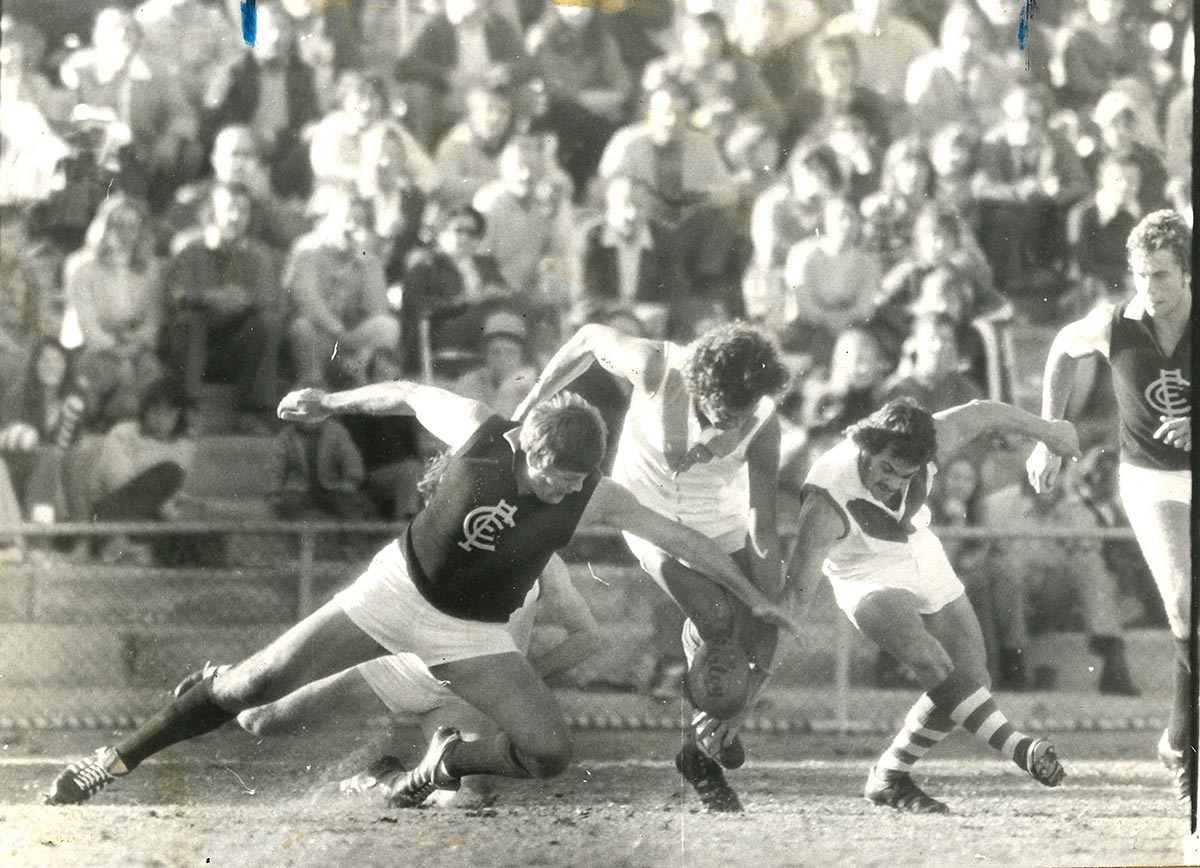
Full name Malcolm Gregory Brown Known as Mal Brown
Born 26 October 1946
Height and weight Height: 187 cm Weight: 97 kg
Senior clubs East Perth, Richmond, Claremont, South Fremantle
Recruited from East Perth (1974), Richmond ((1975), Claremont (1977)
Hall of fame Western Australian Football Hall Of Fame (2004)
Family links Campbell Brown (son)
East Perth 1965 – 1973 Played 166 games 254 Goals
Richmond 1974 Played 14 Games 25 Goals
Claremont 1975 – 1976 Played 12 Games 21 Goals
South Fremantle 1977 Played 10 Games 9 Goals
After a football career laced with more than its share of controversy it is all too easy to lose sight of the fact that Malcolm Brown was actually both a highly talented footballer and a wily and inspirational coach. Powerful overhead and a prodigious punt kick, he excelled at reading the play, and relished being in the thick of the action.
Brown’s league career commenced with East Perth in 1964 and he was first chosen to represent his state two years later at the Hobart carnival. Along with regular trips to the Tribunal he won a Sandover Medal in 1969, and the following year, aged just 23, he became the Royals’ captain-coach, steering his team to a drought-breaking premiership just two years later. The fact that that ‘drought’ had involved no fewer than seven losing Grand Finals over the previous twelve years gives some indication of the significance of Brown’s impact on the team.
That same year his leadership qualities were further recognised when he was chosen as captain of the All Australian team after the Perth carnival. The other side of Brown’s character was starkly and memorably revealed at the end of the season during a championship of Australia semi final against Carlton in Adelaide when, for a time, ‘Mad Mal’ seemed intent on single-handedly turning each and every one of his illustrious opponents into mince meat.
Two years later, Brown enjoyed an entire season – minus the odd appointment at the Tribunal, of course – of this kind of activity when he joined Richmond. After one such Tribunal visit he incurred a suspension that, tragically for Brown, took in the Tigers’ winning Grand Final against North Melbourne.
Back in the west in 1975 he took over as coach of Claremont where, a season later, he was personally responsible for the unilateral, if completely unlawful, introduction of the interchange rule, sending a previously replaced player back into the fray after his team was reduced to 17 fit men. Brown’s ‘inventiveness’ eventually cost him his job, but he returned to football the following year as coach of South Fremantle, where he proved himself an excellent leader, steering the Bulldogs to the 1980 flag.
Mal Brown later took over as coach of a struggling Perth side, but his efforts to resurrect the Demons’ fortunes were stymied by the degradations wrought on the WAFL competition by the inception of the West Coast Eagles. Back at South Fremantle for one season in 1992 he managed to steer the Bulldogs to that year’s Grand Final, but a 24-point loss to ‘derby’ rivals East Fremantle spoiled what until then had been a fairytale return.
Football has perhaps had more accomplished and skilful performers than Malcolm Brown, but few as colourful or entertaining. His selection at centre half forward in East Perth’s official ‘Team of the Century 1945 to 2005’ was hugely justified, and ought to have surprised no-one.
Author – John Devaney

